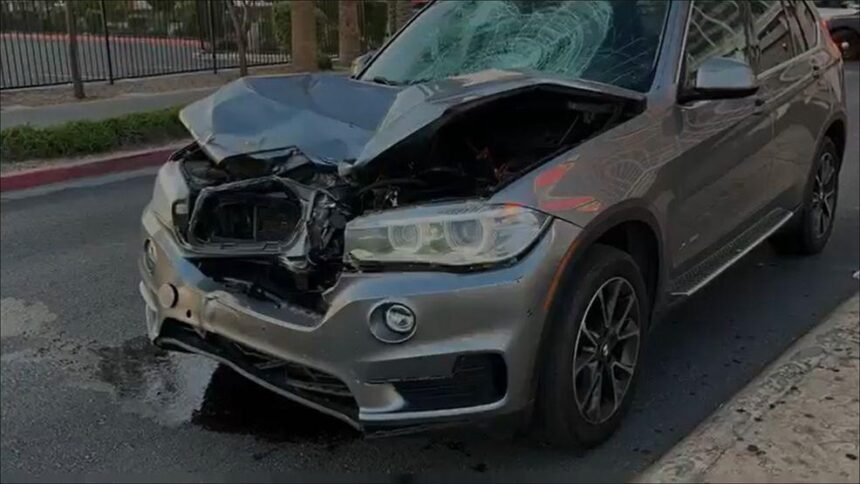Las Vegas Family Seeks Justice in Fatal Hit-and-Run Involving Stolen Hyundai
A grieving family in Las Vegas is demanding accountability following the untimely death of their retired fire chief, who was fatally struck in a hit-and-run accident involving a stolen Hyundai vehicle. The family has initiated legal proceedings against Hyundai, accusing the automaker of negligence related to the vehicle’s security features and safety systems. This lawsuit highlights growing concerns about car thefts and manufacturer responsibility amid a rise in stolen vehicle-related incidents in the region.
Family Files Lawsuit Alleging Hyundai’s Negligence in Deadly Hit-and-Run
The family of the deceased retired fire chief has formally filed a lawsuit against Hyundai, asserting that the company’s failure to equip the vehicle with adequate safety and anti-theft technologies contributed directly to the fatal crash. The stolen Hyundai involved in the incident reportedly lacked effective automatic emergency braking and had insufficient immobilization systems, which the plaintiffs argue are critical in preventing such tragedies.
The complaint emphasizes several key allegations:
- Non-functioning automatic emergency braking: The system did not engage to prevent or mitigate the collision.
- Deficient anti-theft technology: The vehicle’s security features were allegedly easy to bypass, enabling unauthorized use.
- Failure to meet industry safety standards: Hyundai is accused of neglecting essential safeguards that could have prevented the theft and subsequent accident.
| Incident Detail | Alleged Hyundai Shortcoming |
|---|---|
| Hit-and-run involving stolen vehicle | Inadequate anti-theft defenses |
| Automatic emergency braking failure | Possible design or malfunction issue |
| Fatal injuries sustained by retired chief | Result of safety system lapses |
Investigation Links Vehicle Security Flaws to Manufacturer Liability
Ongoing investigations have revealed potential design vulnerabilities in the Hyundai vehicle’s security system that may have facilitated the theft and subsequent fatal accident. Experts close to the case indicate that the car’s anti-theft mechanisms were insufficiently robust, allowing thieves to bypass protections with relative ease. This raises critical questions about Hyundai’s responsibility to address known security weaknesses proactively.
Key findings from the inquiry include:
- Security system vulnerabilities: Evidence suggests the vehicle’s anti-theft technology was compromised without significant resistance.
- Recall and maintenance history: The vehicle model has been subject to multiple recalls related to electronic immobilizer faults.
- Manufacturer’s duty of care: Hyundai’s obligation to implement effective theft deterrents and ensure pedestrian safety is under scrutiny.
| Aspect Analyzed | Findings | Implications |
|---|---|---|
| Vehicle Security System | Confirmed existence of bypass techniques | Increased theft risk and potential for misuse |
| Recall Records | Multiple notices for electronic immobilizer defects | Raises questions about manufacturer accountability |
| Accident Circumstances | Stolen vehicle involved in fatal collision | Influences legal responsibility considerations |
Legal Perspectives on Automotive Safety and Manufacturer Accountability
Legal experts highlight that this case could set a precedent in defining the extent of automaker liability in incidents involving stolen vehicles. While traditionally liability has focused on the driver, emerging legal arguments suggest manufacturers may bear responsibility if their vehicles lack adequate safety and security features. Hyundai’s current safety protocols, including emergency braking and theft prevention systems, are under intense examination.
Industry analysts forecast that this litigation may drive automakers to:
- Integrate more sophisticated anti-theft technologies with emergency response systems.
- Develop clearer policies for software updates and remote vehicle immobilization.
- Increase transparency and communication regarding safety recalls and driver alerts.
| Category | Existing Standard | Anticipated Legal Requirements |
|---|---|---|
| Vehicle Security | Basic immobilizer and alarm systems | Advanced biometric authentication and real-time remote tracking |
| Collision Avoidance | Conventional automatic braking | AI-driven predictive collision prevention |
| Manufacturer Liability | Limited to physical defects | Expanded to include software and cybersecurity failures |
Practical Steps for Consumers to Enhance Vehicle Security and Accountability
In light of increasing vehicle thefts and related tragedies, it is vital for vehicle owners and families to take proactive measures to protect their cars and themselves. Regularly updating security systems and installing advanced anti-theft devices such as GPS trackers,immobilizers,and alarms can substantially reduce the risk of unauthorized use. Vigilance for signs of tampering and prompt reporting of suspicious activity to authorities are equally critically important.
Combining technology with community engagement and education can strengthen overall vehicle security.Recommended strategies include:
- Adopting biometric access controls: Utilize fingerprint or facial recognition systems where available to restrict vehicle entry.
- Using smartphone tracking applications: Monitor vehicle location in real-time and receive instant alerts for unauthorized movements.
- Joining neighborhood watch initiatives: Community vigilance can deter theft and improve response times to suspicious behavior.
- Maintaining thorough insurance coverage: Ensure policies cover theft and hit-and-run incidents to mitigate financial exposure.
| Security Measure | Benefit | Recommended Action |
|---|---|---|
| GPS Tracking | Enables real-time vehicle location monitoring | Install factory-integrated or aftermarket GPS devices |
| Immobilizer Systems | Prevents unauthorized engine start | Verify functionality and upgrade outdated systems |
| Enhanced Insurance | Provides financial protection against theft-related losses | Review and update insurance policies to include comprehensive theft coverage |
Conclusion: Pursuing Justice and Advancing Vehicle Safety
The loss of the retired fire chief has deeply affected the Las Vegas community, prompting a critical examination of vehicle safety and manufacturer responsibility. As the family’s lawsuit against Hyundai progresses, the case is poised to influence future automotive safety standards and legal accountability frameworks. This tragedy underscores the urgent need for enhanced security measures to prevent stolen vehicle incidents and protect lives. Updates will follow as investigations and court proceedings continue.
